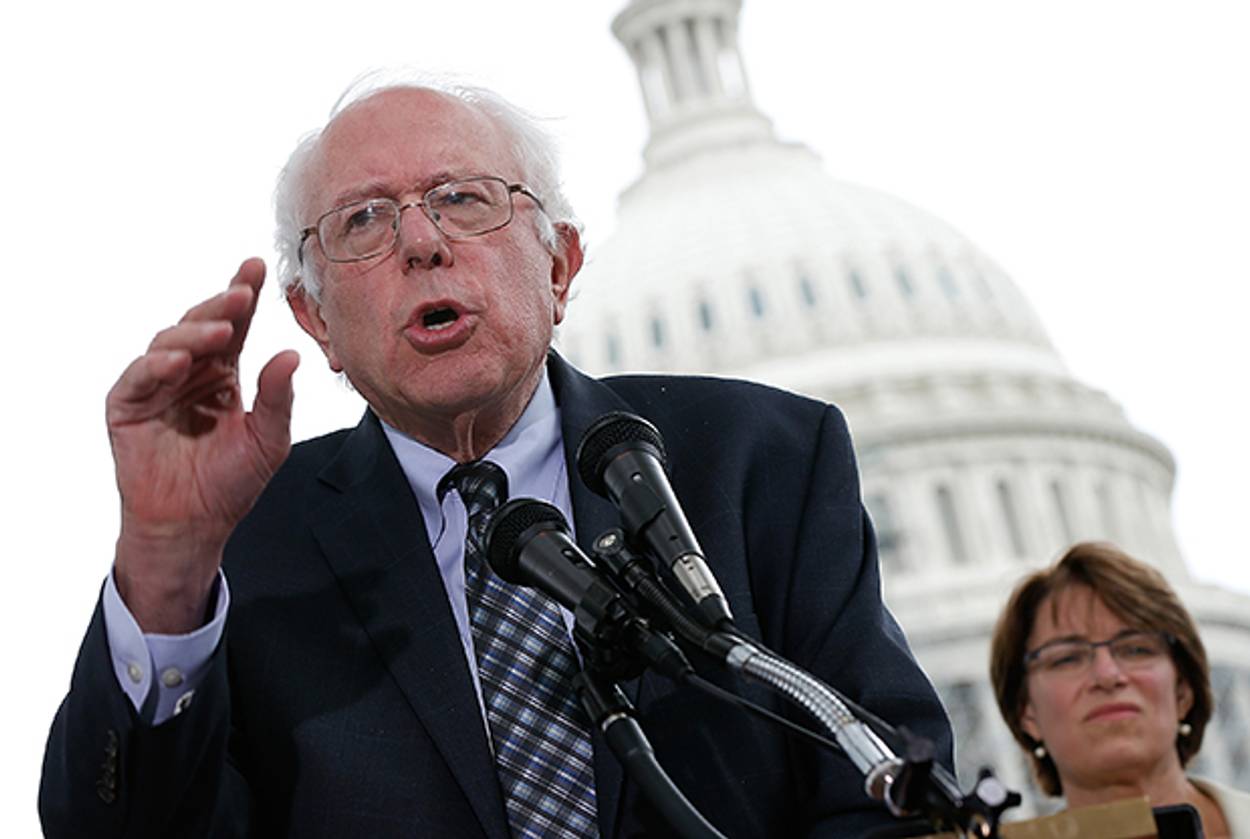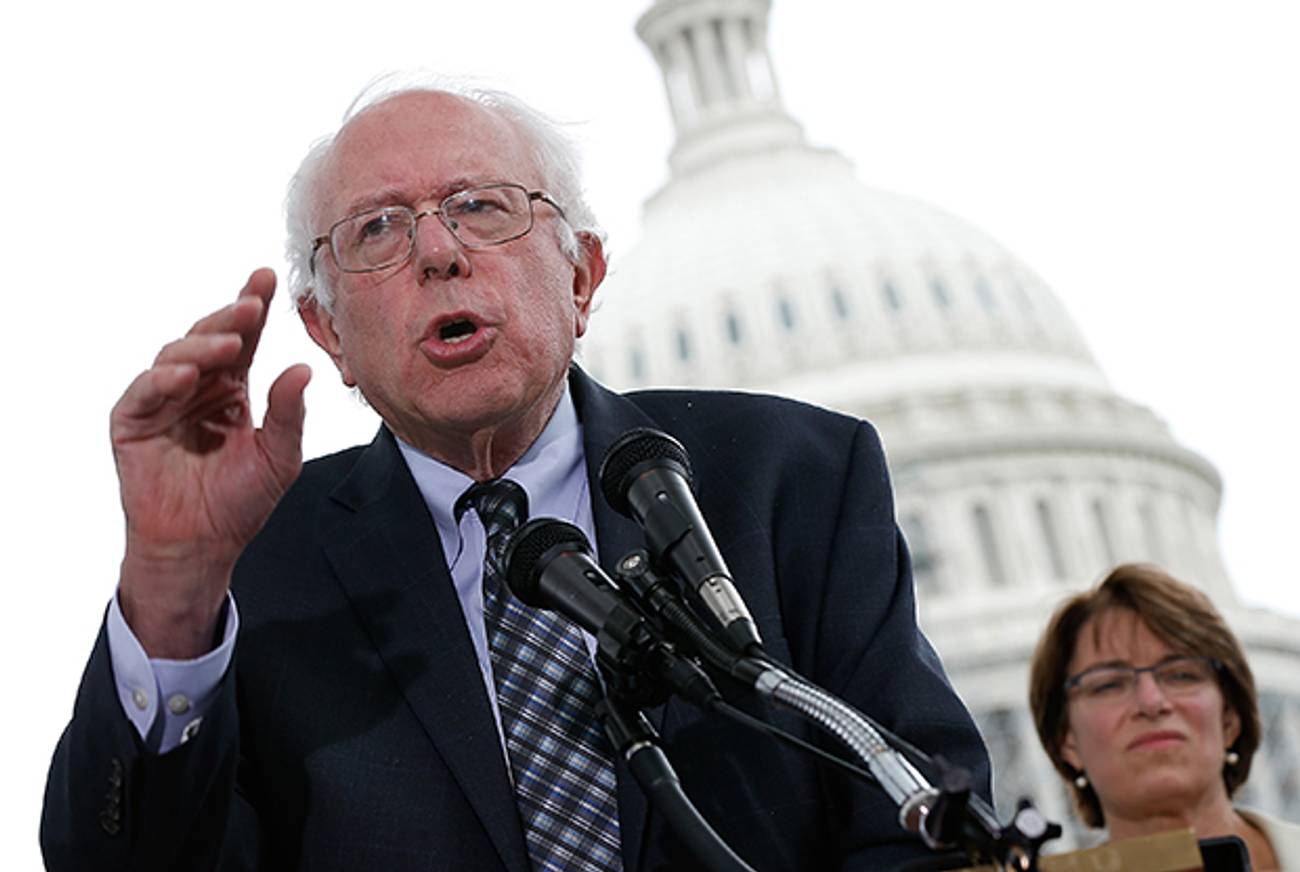Bernie Sanders Sets Sights on the White House
Vermont’s independent senator, a socialist, prepares for 2016 run




The midterm elections are over, which means that it’s time for everybody’s favorite electoral sport—namely, speculating about the next big Election Day. And it looks like presidential politics may have its first significant Jewish candidate since Joe Lieberman’s ill-fated primary run in 2004.
Vermont Senator Bernie Sanders, an independent who caucuses with the Democrats and who identifies as a socialist, took major steps this week toward announcing his candidacy. On Monday, Sanders sealed a formal relationship with marquee strategist Tad Devine, a veteran of the Gore and Kerry campaigns. On Tuesday, Sanders told MSNBC’s Chris Hayes that he would probably run, provided he had enough grassroots support on issues like income inequality.
For those who speculate about the end of the Jewish left, Sanders’ candidacy may seem like an unexpected throwback. Will that old-time Jewish socialism have its say in the 2016 race?
Well, maybe. Born in 1941, Sanders is a Brooklyn native and the son of Polish-Jewish immigrants. His father, a paint salesman, lost most of his family in the Holocaust, according to a 2007 New York Times profile. After graduating from the University of Chicago, Sanders spent time on a kibbutz.
Certainly, socialist ideas would have shaped the Jewish New York of Sanders’ childhood. Among Eastern European immigrants in early 20th century New York, it could be hard to disentangle socialist politics from Jewish identity. Jews formed chapters of the Workmen’s Circle—a fraternal organization with a socialist vibe—and outposts of the Marxist Bund, whose leadership settled in New York the year Sanders was born. In the 1920 presidential election, socialist candidate Eugene Debs won 38 percent of the Jewish vote (and around three percent of everyone else’s).
Still, Sanders is far more likely to talk about Scandinavian healthcare systems than he is about Rosa Luxemburg. In an article about Sanders published in January, JTA pressed him on the Jewish roots of his political career. The prickly senator didn’t offer much:
With a series of observations about the Jewish history of rootlessness and oppression, Sanders begins to describe the role of his lower-middle-class upbringing in forging him into the Congress’ only self-described socialist. Then he catches himself.
“This isn’t a profile,” he declared, interrupting himself.
It’s hard to imagine Sanders winning the nomination. Still, with strong positions on issues like income inequality and corporate politicking, Sanders is primed for a high-profile run.
At the very least, the comedy world is prepared for a Sanders candidacy. Fred Armisen does a pretty spot-on impression.
Michael Schulson is a freelance writer in Durham, North Carolina. He writes about religion, science, and culture.